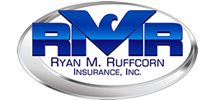
Why You Need an Umbrella Insurance Policy
Most insurance policies provide coverage of a specific kind: homeowners insurance, rental insurance, auto insurance, business insurance, etc. There is a different kind of policy out there that also provides protection- umbrella insurance.
An umbrella insurance policy is designed to protect from claims and lawsuits that can ruin you financially. It’s extra liability coverage for homes, vehicles, businesses, etc., and provides additional coverage against claims that exceed your main policy limits. Basically, an umbrella policy extends your already existing coverage.
An example of when umbrella insurance kicks-in to action:
You purchased a homeowner’s policy that covers up to $300K for each accident/occurrence. You have been found at fault for an injury that took place in your home worth $350K, which exceeds the homeowner’s liability policy limit. You also purchased an umbrella policy, assigned it to the homeowner’s policy, and it covers up to $100K in damages. This means that your total liability coverage for this accident is $400K. With the umbrella policy- there is no financial ruin. Without it- you’d be responsible for $50K in damages.
How an Umbrella Policy Works
An at-fault liability claim can be covered using both your liability policy limit and your umbrella policy limit (kicks in when limits of the main policy have been exceeded). The umbrella policy has to be purchased and assigned to auto, home, business, etc. in order to extend to a specific policy. Basically- you can’t just have an umbrella policy because it is not a stand-alone policy.
An umbrella protects something/someone from the rain. In this case- your auto/homeowners/business policy is what the umbrella protects from the rain- in this case- financial ruin due to an accident. It’s an affordable way to protect your financial future and/or assets.
An umbrella policy offers protections like:
- Property Damage from an auto accident
- 3rd party bodily injury/ medical treatment for the injured party
- Homeowner’s liability claims/someone is injured in your home
- Lost wages because the injured party cannot work due to injury.
- Legal fees.
Things that umbrella policies don’t protect:
- Intentional damage/harm.
- Damage caused by a business does- they cause harm to your property/auto.
- Claims against employers- like workers’ compensation.
Things to consider when deciding to purchase an umbrella policy:
- The assets that you are trying to protect
- The value of those assets.
- The risks you face: commute, house parties/events, business risks, etc.
- Financial situation current and future.
Things to discuss with your insurance agent when discussing an umbrella policy:
- Disclose and discuss all properties and assets.
- Discuss your current insurance coverage: carrier, policy types, and policy limits.
- All information that’s known regarding your financial future.
Umbrella Insurance is for Everyone
It is important to have enough liability coverage from your current policies to cover the costs of negligence. It’s hard to predict how much damage will result from an accident and how much a jury will award a 3rd party. An umbrella insurance policy, depending on certain factors, can cost just a few hundred per year for up to $1M in coverage. Definitely something to consider when thinking about financial protection; current and future.
